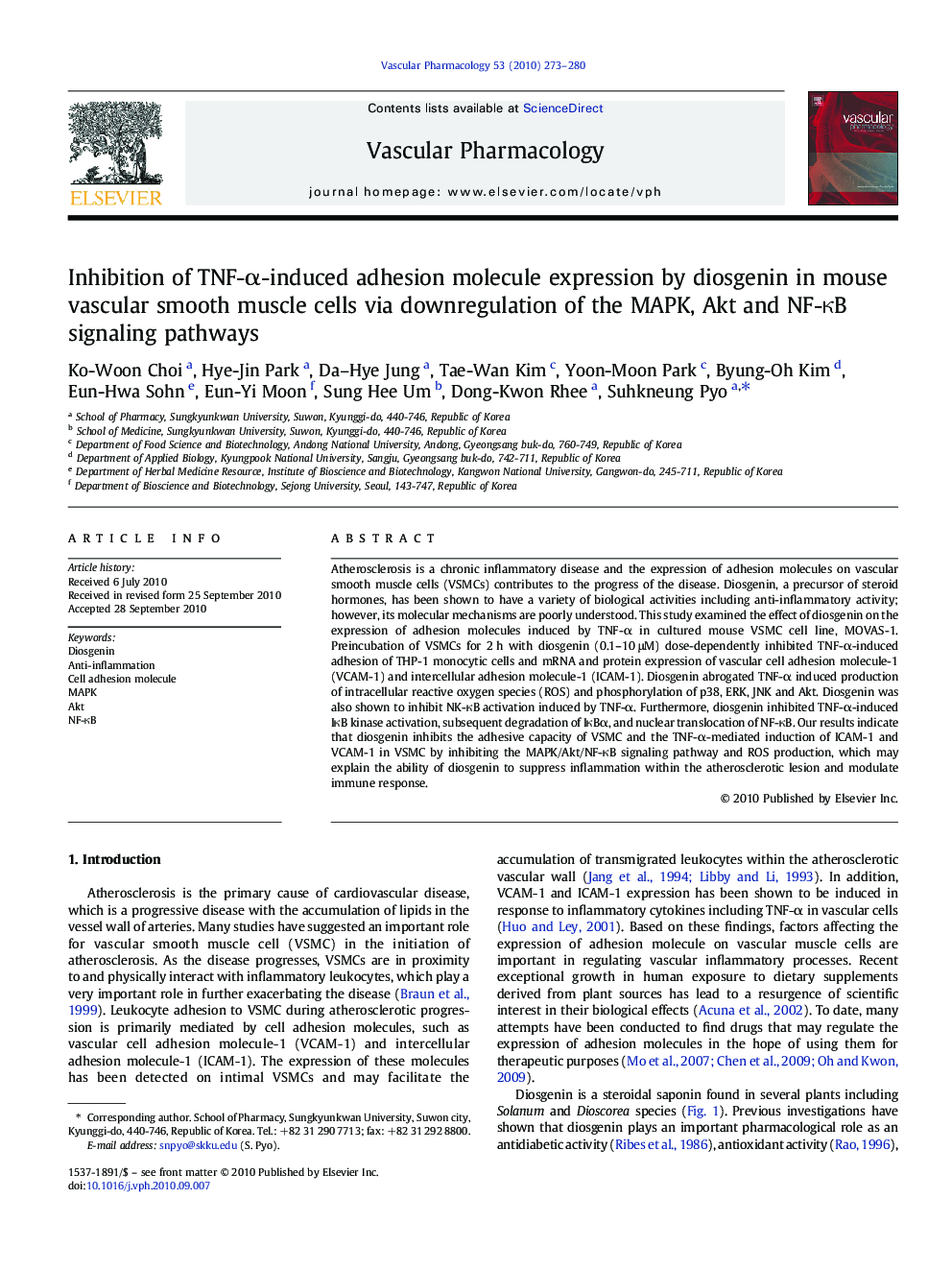| Article ID | Journal | Published Year | Pages | File Type |
|---|---|---|---|---|
| 2574482 | Vascular Pharmacology | 2010 | 8 Pages |
Atherosclerosis is a chronic inflammatory disease and the expression of adhesion molecules on vascular smooth muscle cells (VSMCs) contributes to the progress of the disease. Diosgenin, a precursor of steroid hormones, has been shown to have a variety of biological activities including anti-inflammatory activity; however, its molecular mechanisms are poorly understood. This study examined the effect of diosgenin on the expression of adhesion molecules induced by TNF-α in cultured mouse VSMC cell line, MOVAS-1. Preincubation of VSMCs for 2 h with diosgenin (0.1–10 μM) dose-dependently inhibited TNF-α-induced adhesion of THP-1 monocytic cells and mRNA and protein expression of vascular cell adhesion molecule-1 (VCAM-1) and intercellular adhesion molecule-1 (ICAM-1). Diosgenin abrogated TNF-α induced production of intracellular reactive oxygen species (ROS) and phosphorylation of p38, ERK, JNK and Akt. Diosgenin was also shown to inhibit NK-κB activation induced by TNF-α. Furthermore, diosgenin inhibited TNF-α-induced IκB kinase activation, subsequent degradation of IκBα, and nuclear translocation of NF-κB. Our results indicate that diosgenin inhibits the adhesive capacity of VSMC and the TNF-α-mediated induction of ICAM-1 and VCAM-1 in VSMC by inhibiting the MAPK/Akt/NF-κB signaling pathway and ROS production, which may explain the ability of diosgenin to suppress inflammation within the atherosclerotic lesion and modulate immune response.
Graphical AbstractFigure optionsDownload full-size imageDownload as PowerPoint slide
